Antonio Anastasio Bruto da Costa
Explaining Outcomes of Multi-Party Dialogues using Causal Learning
May 03, 2021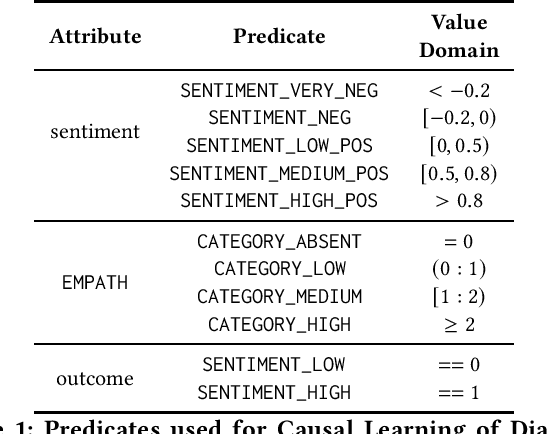

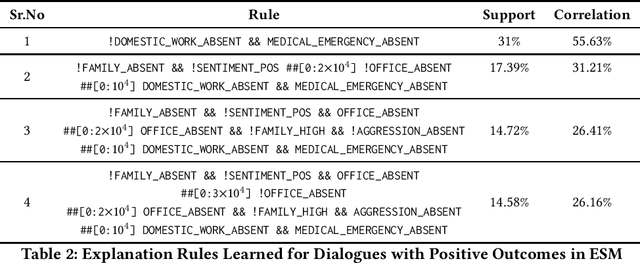

Abstract:Multi-party dialogues are common in enterprise social media on technical as well as non-technical topics. The outcome of a conversation may be positive or negative. It is important to analyze why a dialogue ends with a particular sentiment from the point of view of conflict analysis as well as future collaboration design. We propose an explainable time series mining algorithm for such analysis. A dialogue is represented as an attributed time series of occurrences of keywords, EMPATH categories, and inferred sentiments at various points in its progress. A special decision tree, with decision metrics that take into account temporal relationships between dialogue events, is used for predicting the cause of the outcome sentiment. Interpretable rules mined from the classifier are used to explain the prediction. Experimental results are presented for the enterprise social media posts in a large company.
Flexible Mining of Prefix Sequences from Time-Series Traces
May 29, 2019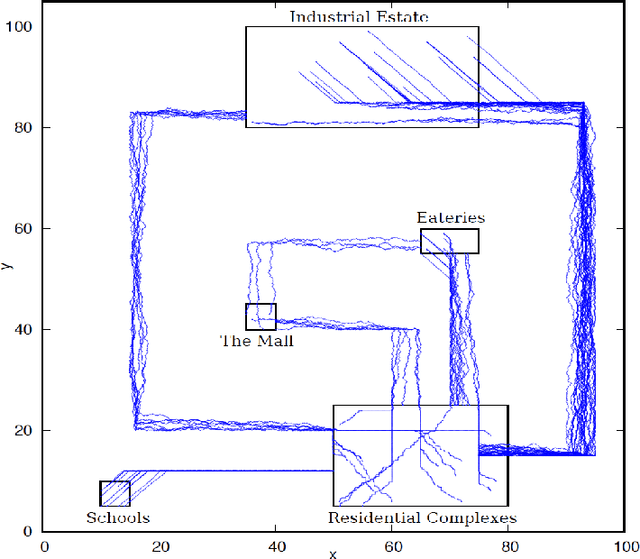

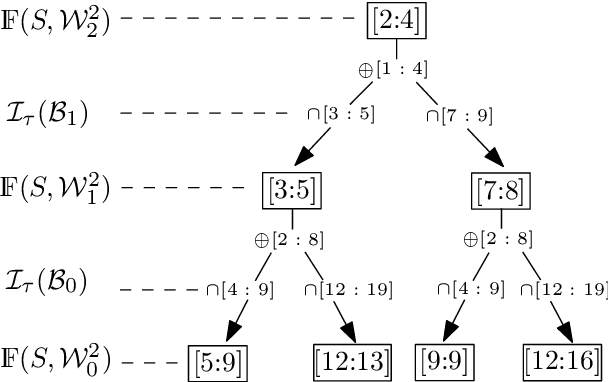
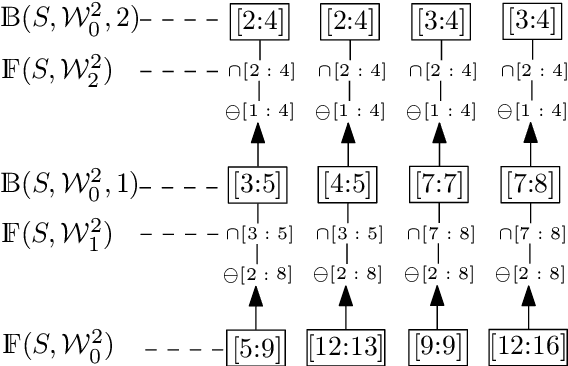
Abstract:Mining temporal assertions from time-series data using information theory to filter real properties from incidental ones is a practically significant challenge. The problem is complex for continuous or hybrid systems because the degrees of influence on a consequent from a timed-sequence of predicates (called its prefix sequence), varies continuously over dense time intervals. We propose a parameterized method that uses interval arithmetic for flexibly learning prefix sequences having influence on a defined consequent over various time scales and predicates over system variables.
 Add to Chrome
Add to Chrome Add to Firefox
Add to Firefox Add to Edge
Add to Edge